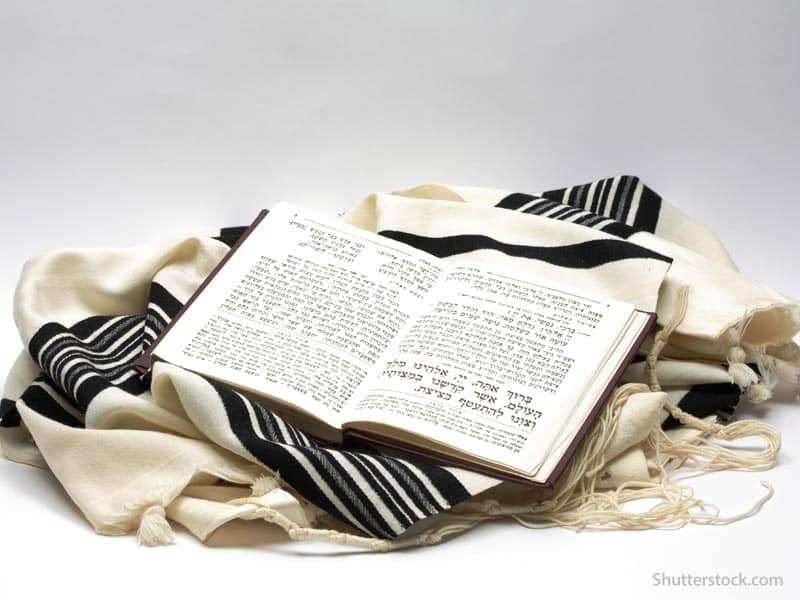David is the most complex personality in the Bible, with the longest story. He took over the kingship of Israel after the demise of Saul. The life of this shepherd boy, whose great political achievements included pushing back the Philistines, moving the capital to Jerusalem, and consolidating the kingship, makes for a fascinating story.
David was a warrior, a lover, a disciple, a leader, a sinner, a musician and poet, a powerfully conflicted father and husband, and a leader whose impact was so powerful that he remains the fountainhead of messianism in the Jewish and Christian traditions. In Jewish tradition the Messiah is called "Messiah, son of David," and the longest genealogy in sacred Western literature is the New Testament's genealogy to prove that Jesus descended from the Davidic line.
The twists of David's life make for a powerful novel (most particularly "The King David Report" by Stefan Heym) and some persuasive scholarship. This may be why Nextbook.org, a terrific online publication that covers the expansive world of Jewish books, and the venerable Jewish publishing house Schocken decided on a book about David to launch their Jewish Encounters series--brief, nicely designed books on major personalities, themes, and events in Judaism.
To kick off the series, the former Poet Laureate of the United States, Robert Pinsky, has written "The Life of David." Not King David, you note, but David. The title tells us a great deal about the poet Pinsky's intentions in retelling the saga of the Psalmist.
While Pinsky accepts the basics of biblical criticism (noting different sources for David's story) he does not enter into the essentially unanswerable question of what is historically accurate in this remarkable saga. Nor does he bother himself overmuch with the political side. This book is about David, the human being, the fantastically complex, charismatic, lucky leader of Israel.
One would think that what would most interest a poet is David the poet (most of the biblical Psalms are ascribed to David). But that is to assume poetry is about language instead of about the world. What engages Pinsky is this character who leaps off the page: the rake who schemes until his literal dying breath, but who is also a man of exquisitely sensitive understanding and eloquent emotion. David's story takes place in a time when politics and royal families were virtually identical. "The story of David is a story of flawed fathers, of unexpectedly powerful women and of defiant sons," Pinsky writes.
Seeing David from every angle
Read more on page 2 >>
| _Related Features | |
| |
 |
Pinsky tells David's story episodically. At times (to paraphrase Emily Dickinson's poem about truth) he tells it slant, so the uninitiated may be driven back to the Bible to get the context. David's life is filled with vivid secondary characters, but Pinsky cannot give all of them their due in such a short space without scanting the main character. But the picture builds as we walk around it, the way one would walk around Michelangelo's David, and see the beautiful boy from every angle, grasping much, but never understanding it all.
David defeats coherence. The only way to write faithfully about him is to be well-muscled in negative capability, as we would expect a poet to be. One must be able to embrace contradiction, which is logically problematic, but thematically true. Here is Pinsky writing after citing David's famous ode to the fallen Saul and Jonathan:
"Who is the man--or, for that matter, if he is a figment then what is the figment?--who writes such a poem and who repeatedly kills all the inhabitants of a place to keep his raid secret? Who is the creature who pleads with Achish to go into battle against Saul and Jonathan and then laments for Saul and Jonathan?"
David demonstrates "his power of simultaneous conviction and detachment." A wonderful description of a leader, and a quality David carries into all areas of life. His is indeed "a life entire," a life with all the facets of his world experienced and embraced.
A midrash (rabbinic teaching) that Pinsky does not cite notes the difference between the first verse in Chapter 1 of Kings, and the first verse in the second chapter. David's story as told in the book of Samuel is ending. In the first chapter we are told "And King David was old, advanced in years." The second chapter begins "David was dying."
The rabbis note the difference in designation. When he is dying, the king loses his honorific and becomes only "David." It recalls us to the shepherd boy whose own father did not recognize his greatness, but who challenged Goliath with a faith based on skill, who schemed for women and against enemies, whose once-trusted generals he slays and whose children rebel against him; David who feigned madness to save his life and composed timeless songs of fear and of faith. No one can give such a person whole; we will inevitably see but a part.
Robert Pinsky has stirringly portrayed the man who "masters the harp as well as the sword: a poet as well as a warrior-killer, but as a poet he is far above any other hero, and as a killer no one among the poets can even approach him."

